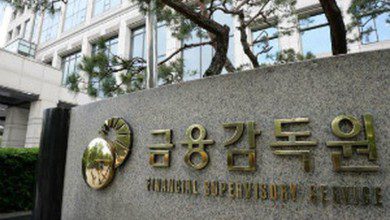
Scoping Trends: Can the Domestic Korean Blockchain Market Grow?
The passing of the amendment to the Special Money Act has raised a number of questions about the future of the blockchain industry in South Korea. With the new law cryptocurrency companies including exchanges, wallet companies, and others will have full legitimacy in the eyes of the law. More specifically, the FSC will have a stronger hand in ensuring that all the financial transactions of such companies are above board, as is also the case for legacy finance markets.
Industry officials, however, are saying that it is too early to expect full-fledged growth in the industry. Mergers and Acquisitions (M&A) will certainly increase in the short term, as with the recent acquisition of Bitberry by Moviebloc. These M&A efforts may be done in an effort to escape the legal binds that will come into existence when the Special Money Act is fully implemented in September 2021. The reasoning behind relatively large M&A deals in Korean blockchain comes as a direct result of the Special Money Act, but maybe not for the the reasons one would expect. One stipulation in the law is that blockchain startups transacting with cryptocurrency must obtain ISMS certification from KISA, the Korean Internet Security Agency. That certification can cost upwards of $12,000 – a sum many small tech startups cannot afford for a single certification. For many startups, being acquired by a larger company with more liquidity is the only way for them to move forward with their plans under the new law.
Some speculate that it is difficult for M&A to truly stimulate the growth of the domestic blockchain industry considering they are mostly last-ditch efforts on the part of startups in early stages. A healthy startup economy includes a wide array of small, hungry startups all seeking different successful routes to help the community, industry, economy, and society fulfill unserved needs. With frequent, desperate M&A however, the field of small, hungry players becomes awash with the same monotonous brands. To add to the trouble, the acquisition of small startups by foreign companies is highly unlikely to grow as it is uncommon even today due to the fact that startups are generally not profitable until many years into their development.
This lack of scale-up among blockchain tech startups appears to spell out a pullback in the blockchain industry and ecosystem in Korea. Between Korea, China, and the USA, Korea’s blockchain startup scale-up rates were by far the lowest by every measure. The chief researcher at the Korea International Trade Institute, Boyung Kim, acknowledged that the Korean startup economy has expanded fairly well over the past few years, but the scale-up rate is insufficient. He recommended promoting deregulation which, unfortunately for his point of view, is the opposite route the country is taking.
Telegram Channel- https://t.me/TheNewsAsia
Telegram Chat (partner) – https://t.me/cryptodakurobinhooders
Twitter – @TheNewsDotAsia
Facebook – https://www.facebook.com/groups/chains.asia/
email – hello@thenews.asia




